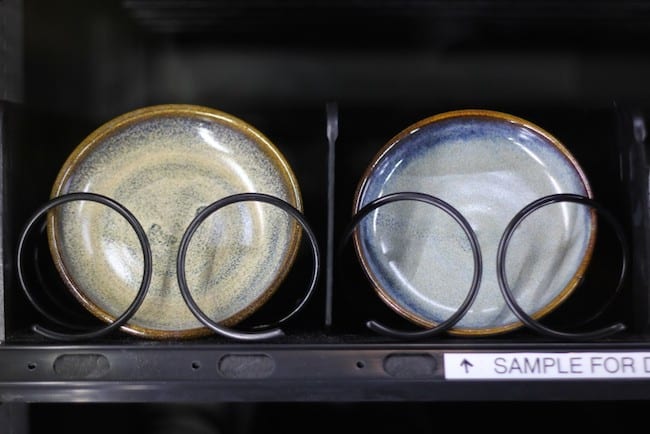An imaginative 18 year-old student from the School of the Arts Singapore, Hans Chew, commissioned a custom vending machine to dispense hundreds of ceramic works he made over the course of a few months.
The exercise, according to Contended, is a discussion on the commodification of art. They state:
“Ultimately we have been very much desensitised from the process of “making” and are fed with this deluge of products that we consume at face value,” he shares with Contented. “Personally, I find it extremely hard to grapple with this issue as I question myself: How is functional crockery made? Where are they made? How are they able to produce them at such a scale?”
…
The idea is to re-create the concept of mass production. Except instead of having these ceramic wares mass produced by factories, you have an 18-year-old student toiling at a pottery wheel for two sleepless months to get his point across.
Sure, he didn’t need to put himself through hand-making each piece, nor did he need hundreds of ceramics. But it was the only way, he says, to “illustrate how the tradition of craft has been affected by the forces of commercialisation.”
Chew was inspired by a recent trip to Japan, which sells everything from snacks to surgical masks through vending machines.
Although intentionally bereft of human interaction, the machine bargains with its customers on good faith. A more heavy-handed student may have let the ceramic works shatter when they were dispensed but Chew worked with a specialized company to prevent this from happening. There’s also a method by which people can pay what they think the piece is worth, rather than having that price dictated to them by the machine. If only all conceptual art was this smart.
Any thoughts about this post? Share yours in the comment box below.





The work of this young Singaporean caught me especially among all the really interesting items you reported in this issue: I just came back from Japan, but we don’t need Japan to put us in touch with the mechanized world we live in which alienates us from the immediate experience involving touch, direct human negotiation, and which leaves us with a certain nostalgia. He found a clever way to make us “think” and “feel” when standing in front of his vending machine- thinking about our lives, about what’s important, about how far we moved from first-hand experience and production. Chapeau!